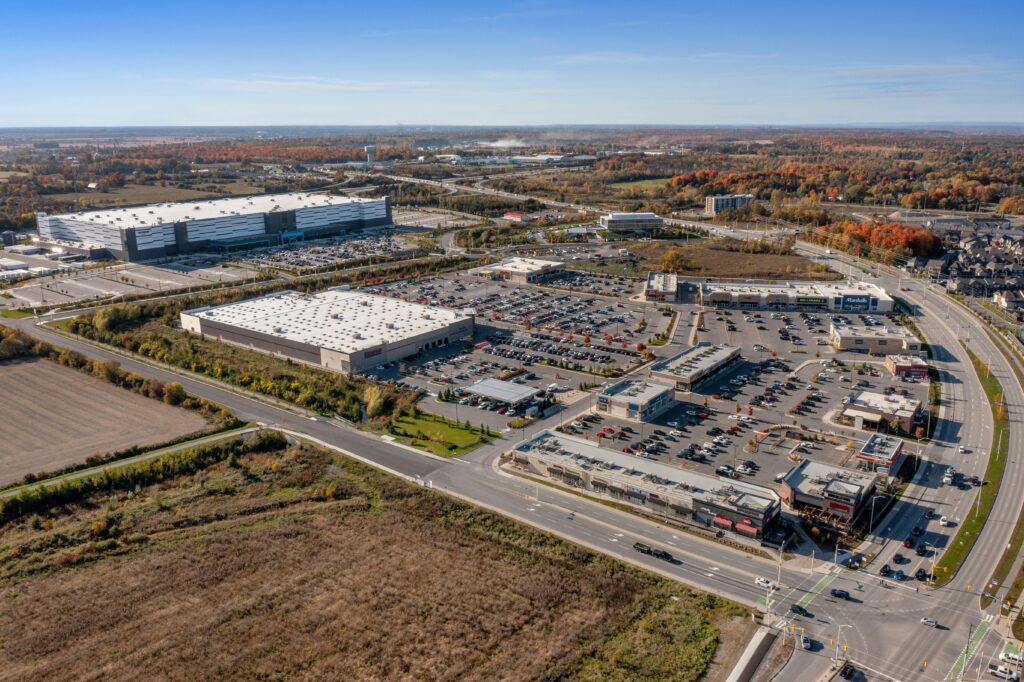Understanding the Importance of Digital Marketing in Logistics
In the dynamic world of logistics, digital marketing is no longer optional; it’s a critical driver of growth. As the logistics industry evolves with technology integration, companies must embrace a digital marketing strategy for logistics companies to stay competitive. According to a 2022 report from Logistics Management, 73% of logistics companies that implemented comprehensive digital strategies saw a notable increase in brand visibility. This isn’t just about having a website or social media presence; it’s about leveraging digital channels to build trust and establish authority in a fast-paced market.
Just imagine a company like DHL using innovative augmented reality for one of its marketing campaigns-not only to impress viewers with the latest service but also to engage users in a very unusual, yet memorable, way. This could be further supplemented by personalized email marketing, the advertisement of services on industry-specific social media platforms such as LinkedIn, and search engine optimization with keywords directly relevant to logistics. Embracing this approach means just one thing-keeping abreast, if not well ahead, in a constantly shifting digital environment.
Building a Strong Online Brand Identity:
Developing a strong online brand identity in the logistics industry requires much more than a logo and tagline; rather, it is an art of telling a story to which your audience can relate. Begin by defining your value proposition-what makes your company different from the competition in the highly saturated logistics market. Tell your story through digital channels to help CDL staffing agency depict these values. After all, a study by Edelman found that 81% of consumers need to be able to trust a brand before they can buy from it. Accomplish this by being transparent about your operations, showcasing customer testimonials, and displaying any industry certifications. Consistent branding across your website, social media, and beyond keeps the message clear while building trust and loyalty.
Leveraging Search Engine Optimization for Visibility

- Keyword Optimization: Identify logistics-specific keywords that potential clients are searching for, such as “supply chain solutions” or “freight forwarding services.” Tools like SEMrush will help find the keywords with high traffic and low competition so your content reaches the right audience.
- Local SEO: sign your business to Google My Business for better visibility in local results. Engage in community-driven content and participate in local link building to relate it to other firms around.
- Technical SEO Improvements: Increase site speed and mobile responsiveness. Google’s Core Web Vitals are the indicators to track, and below three seconds will give a boost in user experience and rankings.
- Content Strategy: Regularly publish informative blogs or case studies which talk to the pain points of the industry. This helps position your brand as a thought leader and earns backlinks to improve authority.
Leverage Content Marketing to Educate Your Audience
The bottom line is, content marketing could be an enabler of such a strategy that takes your logistics company from ‘just another service provider’ to an industry authority. Creation of informative, relevant, and constant content could just teach said audience about their own challenges and softly show them your expertise.
First, develop a rich content strategy based on what people are desperately seeking and any pain points for logisticians. This will be in-depth whitepapers detailing supply chain optimization, riveting blog pieces talking about what is new, and even entertaining video explainers about how difficult the process is in logistics. According to HubSpot, in 2023, companies that focused on educative content strategies retained customers by up to 97%.
Use customer data and market research to personalize your content for specific audience segments. Suppose a large chunk of your customers are eCommerce companies; then create content that reveals the ways of managing inventory efficiently. Plus, the infographic showing logistics statistics in an infographic manner can bring massive engagement on social media.
This, in turn, will have the implications of your logistics company going all out to have a felt online presence with constant high value for content and build trust to eventually be a recurring trusted source for industry expertise.
Leverage Social Media Platforms for Engagement
- Platform Selection: Be very specific to the platforms on which your audience thrives. LinkedIn is pivotal for B2B engagement, while Instagram and Facebook can humanize your brand through behind-the-scenes content.
- Interactive Content: Run live Q&A sessions with logistics experts or webinars on industry trends; this will help in real-time engagement and understanding the interests of the audience.
- User-Generated Content: Encourage customers to share experiences with your services using a branded hashtag. Highlight these stories for better credibility and trust.
- Data-driven campaigns: Utilize analytics tools to monitor the rate of engagement, thus revising content strategies on what really resonates with the audience.
How to Run a Pay-per-Click Advertising Campaign for Quick Results
One of the most effective ways to increase your logistics company’s online visibility is by quickly using Pay-Per-Click advertising. By allowing your targeting of particular keywords relevant to logistics, say, “freight shipping solutions” or “supply chain management,” PPC campaigns enable your ads to appear to those who are more likely to require these services. Whereas other marketing tools cannot provide such speed, the immediacy of a Pay Per Click campaign means your company can instantly rise to the top of search results, capturing potential clients at the precise moment they need logistics solutions.
Writing engaging ad copy that showcases your company’s unique services and utilizing ad extensions to provide further information, like contact and promotions, will greatly increase click-through rates. For example, adding geo-targeting to your campaigns could better attract clients in certain regions where your logistics services are more competitive, ensuring better ad spend and increased ROI.
Besides, PPC platforms like Google Ads give you the ability to constantly optimize, based on performance data. You can work on fine-tuning your strategy for maximum effectiveness by analyzing conversion rates and adjusting your bids. This proactive approach will not only improve visibility but also ensure a strong foothold in the competitive market for real business growth.
Optimizing Website Performance to Ensure Good User Experience
In the quest to improve website performance for a better user experience, logistics companies must ensure speed and smooth interaction. According to Akamai, a two-second delay in page load time will increase bounce rates by 103%, indicating how vital it is to have a fast website. Begin by reducing image sizes and enabling browser caching in order to increase loading speed. Leverage Content Delivery Networks, or CDNs, to make sure users around the world access your site consistently and at speed.
Intuitive navigation far surpasses mere technical speed. Visualize a typical logistics user journey-say, finding freight solutions or even shipment tracking-designed with your layout for utmost efficiency in view. Apply complex search functionality, call-to-action buttons, and anything else needed to push them along towards your desired result easily.
Finally, implement responsive design. With 54% of global internet traffic coming via mobile devices, according to Statista in 2023, having a harmonious mobile experience is no longer an option. Periodically perform UX audits for the detection and fixation of friction points using tools like Hotjar to obtain feedback from real users. Attending to these will keep your logistics company competitive online.
Leverage Email Marketing Campaigns
E-mail marketing remains one of the strong tools in the arsenal of digital marketing for logistics companies, serving as a direct line to both existing clients and potential leads. It’s possible to enhance customer interaction and retention using personalized e-mail marketing campaigns. According to the 2023 Campaign Monitor report, personalized emails had a transactional rate six times higher compared to those which were not personalized.
Segment your lists according to industry, client needs, or transaction history. This will help ensure your emails are relevant in addressing specific logistical challenges or offering tailored solutions. For example, a quarterly newsletter could update clients on innovations in eco-friendly shipping solutions aligned with global trends on sustainability.
Additionally, automation tools can streamline your efforts, allowing for timely follow-ups triggered by user behaviors, such as signing up for a webinar or downloading a whitepaper. An impactful case study comes from FedEx, which saw a 15% increase in click-through rates by integrating dynamic content into their email templates, personalizing each customer’s experience.
This means that one can only get its fullest by repeatedly assessing certain metrics, including open rates, conversion rates, among others. The logistics firm would always compete well and build long-lasting relations with the clientele while increasing business on the back of improved engagement using email marketing.
Data Analytics: Analysis and Shift of Strategies

To really take your logistics company to the next level online, data analytics play a big role. From monitoring performance metrics, companies can identify which digital marketing strategies work best and adjust accordingly. For example, predictive analytics will help forecast customer needs and enable the stitching of offers for services. According to a 2023 study by Gartner, businesses that embraced data-driven marketing saw a 25% increase in ROI.
Consider using advanced tools like Google Analytics and HubSpot for monitoring website traffic, conversion rate, and customer behavioral patterns. The obtained data allows logistics companies to enhance targeting in PPC campaigns or to develop content plans that better meet the preferences of targeted audiences. Logistics leader XPO Logistics used analytics to create personalized experiences for customers and saw a 20% increase in customer satisfaction. Continuously integrating insights from data analytics will keep your strategies agile and highly effective.
Final Thoughts: How to Upgrade Your Logistics Company Website Presence
Essentially, improving your logistics company’s online presence involves a well-focused and multi-faceted approach to digital marketing. The adoption of important strategies like personalized email marketing, targeted PPC campaigns, and an engaging content marketing plan will drive effective reach and resonance with the target audience. Give importance to SEO, including logistics-specific and local keywords, as it enhances the visibility of search results to attract qualified leads. Building a strong brand narrative and maintaining a consistent online brand across all platforms builds trust and loyalty, which helps in retaining customers.
Social media engagement simply humanizes your brand and creates community and interaction. Meanwhile, website performance optimization creates a seamless user experience important for retaining visitors. Adding data analytics provides necessary insights to guide strategic adjustments toward improved efficacy overall. With tools like Google’s Core Web Vitals and advanced analytics platforms, you will be able to continually enhance and refine your digital marketing tactics.
Ultimately, staying competitive within the evolving logistics landscape means embracing these digital strategies with agility and innovation. By implementing these, a logistics company has the potential to enhance its visibility online, while making it a leader in the eyes of trusted business partners.
